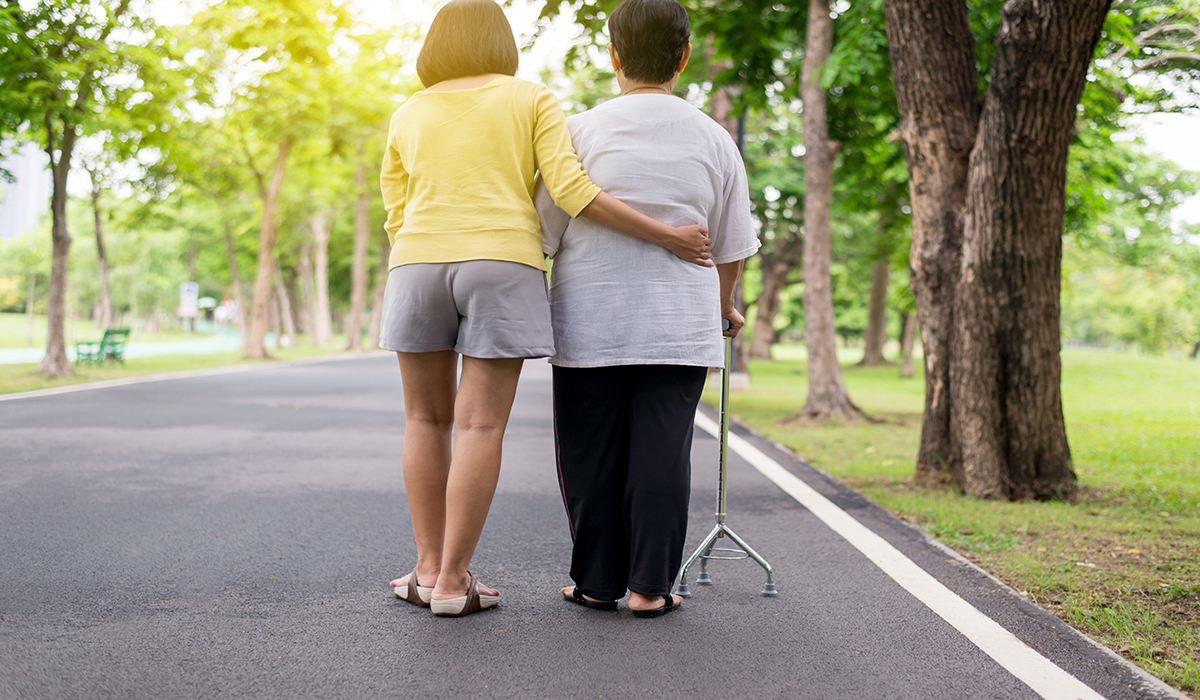
According to data from the National Institute on Aging, one in four of individuals age 65 or older falls each year.
For seniors, especially those living alone, a fall seems to be always around the corner waiting to happen. It lurks in almost every corner of the home, as well as in the backyard and throughout the neighborhood. A fall can happen anywhere, and victims can end up with anything from a bruise or cut to a broken hip or even a life-threatening head injury.
Individuals with dementia are especially vulnerable to falls. That’s because it dementia causes a combination of cognitive and physical issues that make it more difficult for the individual to complete simple actions that they have done all their lives. That includes walking.
The culprit? Brain damage.
Individuals with dementia experience escalating damage to the motor and premotor cortex, the limbic system, and the basal ganglia of the brain. To coordinate brain signals from the brain to the muscles, all must work together. That is what enables an individual to do things like sit down, get up from a chair, turn around and walk. But when this complex network of signals and muscle response fails, even slightly, the result is often a fall.
Did you know that falls can differ depending on the type of dementia?
Many families don’t realize that the movements associated with a fall can differ depending on the type of dementia an individual has. It will also affect the nature and direction of the fall As an example, Alzheimer’s often involves a fall back into a chair when an individual attempts to get up. Individuals with Lewy Body disease or Parkinson’s dementia may experience a hard fall forward or backward resulting from a sudden stiffening of the body often accompanies by a loss of consciousness. The National Institute on Aging and the Itty Bitty Dementia Book by Dr. Tam Cummings explain in greater detail how the type of dementia may impact the fall.
The best way to handle a fall is to prevent one.
Here are some areas to focus on to help prevent your loved one from taking a bad fall:
Memory care communities work to reduce falls 24/7.
No one understands the link between dementia and the risk for falls better than professional caregivers in memory care communities. Safety must always be one of their top priorities and it is why so many families make the decision to transition their loved ones with dementia into memory care.
Our own staff at our Anthem Memory Care communities are trained to recognize the physical manifestations of each stage of dementia and recognize the triggers and warning signs of a fall. They work with residents to optimize their mobility and retain it for as long as possible. We incorporate a range of mobility aids as well as visual cues to help avoid confusion that could precede a fall. This includes strategically placed handrails, color coded pathways, signage, and flooring with non-glare coating.
While there is no guarantee that you can prevent a fall, you can improve the odds!
If you are caring for an aging loved one who is beginning to experience mobility issues, now is the time to arm yourself with information and gather the necessary tools to optimize their mobility and keep them safeguarded against activities and obstacles that can lead to a fall.
Feel free to contact an Anthem Memory Care community near you. We’ll be glad to answer your questions and share our resources with you. We’re here to help!